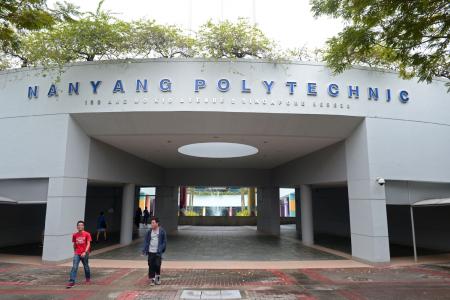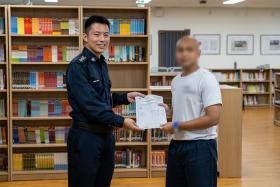Nanyang Poly's new teaching model breaks down subject boundaries
Polytechnic will have students work on projects that involve different subjects and skills from the start
A polytechnic is introducing changes in its teaching approach that will see students work on projects that involve several subjects and skills from the get-go, similar to what employees in industry have to go through.
From April next year, students intending to pursue business intelligence and analytics at Nanyang Polytechnic (NYP) will be the first to go through a newly designed curriculum, which breaks down subject boundaries and brings industry closer to them.
In 2022, new students taking up the diploma in game development and technology will follow suit.
Under the new approach, students will take units that combine several subjects and skills, with industry players contributing content material and possibly teaching it.
Traditionally, polytechnic students take modules along subject lines and would be expected to apply the knowledge and skills learnt from their first year of education to a problem-solving project in their final year.
But NYP wants to overhaul this approach, its principal and chief executive Jeanne Liew said in a remote briefing yesterday.
"I asked my team to free themselves and start on a blank slate to reimagine the possibilities," she said.
If you had the autonomy to start a new poly today, how would you do it? This was the question Ms Liew posed to her staff two years ago.
As they mulled over the rapidly changing demands of the workplace, the polytechnic officials and lecturers decided that it was timely to shake up the way it teaches students.
PROJECTS
Instead of breaking a course into modules like mathematics, communications studies and software engineering, students will work on multi-disciplinary tasks or projects, starting from their first year, she said, adding that this mirrors what happens at the workplace.
These tasks will be part of a competency unit that combines several subjects and skills.
Four tech industry leaders - Google Cloud, Microsoft, Oracle Academy and SAS Institute - have contributed content material and may be involved in teaching parts of the course.
Ms Liew said this learning approach is the first of its kind among the polytechnics here.
The hope is for more of NYP's 40 diploma programmes to adopt the new teaching model, named the NYP Professional Competency Model.
In total, they will take 33 competency units and six work-integration-units, which include their final-year project and an internship in the third year.
They will still have a grade point average, but a higher weighting - 70 per cent - will be given to practical assessment such as projects and internship, up from the current 50 per cent.
"With the industry certifications together with the NYP diploma, it will be very good in terms of their resume. It's testament to the kind of industry-relevant skills that they have," said Ms Liew.
Get The New Paper on your phone with the free TNP app. Download from the Apple App Store or Google Play Store now


